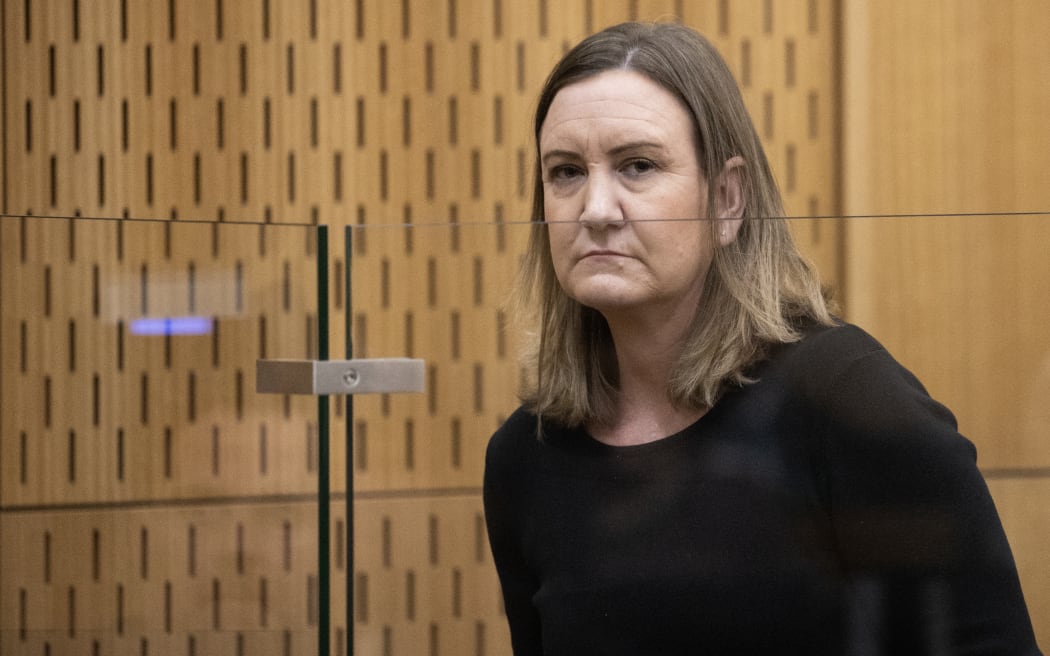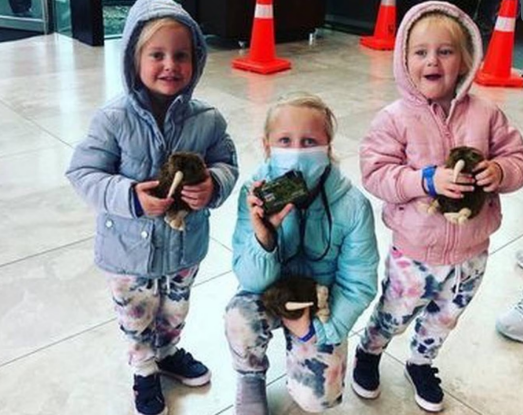
A jury has found Lauren Anne Dickason guilty of murdering her three children in their Timaru home.
So what happens to her now?
Justice Cameron Mander told the jury on Monday that Dickason’s future was up to him.
Dickason smothered Liane, 6, and 2-year-old twins Maya and Karla to death at their home in Timaru on September 16, 2021.
She admitted killing the girls but pleaded not guilty by reason of insanity or infanticide.
After the majority verdict finding her guilty of murder, Justice Mander will sentence her at a date yet to be determined.
Dickason must be sentenced to life imprisonment, as explained in the Sentencing Act, unless the circumstances of the offence and the offender, imprisonment for life would be manifestly unjust.
Where she will be detained is also undecided.

For her sentencing, the judge will consider whether to send her to prison - or detain her as a special patient under the Criminal Procedure (Mentally Impaired Persons) Act 2003.
If he makes that order Dickason could spend the rest of her life as a patient at Hillmorton Hospital’s psychiatric unit.
Only the national director of mental health can approve her release when and if she is ever deemed well enough.
Judge accepts majority verdict
Just before 3pm the jury sought instruction from Justice Mander about what they should do if they could not reach a unanimous verdict.
He said he would accept a majority verdict - meaning if all but one of them agreed their decision would stand - and sent them to continue deliberating.
At 3.02pm the jury rang the bell indicating they had reached a verdict.
Dickason’s parents then returned to the courtroom - her mother in tears as she waited for the outcome - and court staff put extra tissues out along the jury bench.
Before they were sent out to begin deliberating, the jury heard a lengthy summing-up of the trial from Justice Cameron Mander.
He also explained their options for verdicts and how to reach them.
There were four options for the eight women and four men who have been serving on the jury for more than four weeks.
- Guilty of murder
- Guilty of the alternate lesser charge of infanticide
- Act of murder proven but not criminally responsible on account of insanity
- Act of infanticide proven but not criminally responsible on account of insanity
The jury had been deliberating since Monday afternoon.
Dickason’s parents were in court - as they have been for the entire trial - to hear the final outcome.
Her husband Graham Dickason returned to South Africa after the alleged murders and did not return to New Zealand for the trial.
Over the last five weeks, the jury heard extensive evidence about Dickason’s life before and after she and her family emigrated to New Zealand from South Africa a month before the children died.
Dickason’s lengthy battle with a major depressive disorder, her gruelling fertility journey including at least 17 rounds of IVF and the loss of a baby early in a pregnancy, and her struggles with motherhood were canvassed.
The court was also shown videos of Dickason and her husband Graham being interviewed by police after the girls were killed.
The King v Lauren Anne Dickason - the Crown and defence cases
The Crown alleged Dickason murdered the children in a “calculated” way because she was frustrated, angry and resentful of them.
It acknowledged Dickason suffered from sometimes-serious depression, but maintains she knew what she was doing when she killed the girls.
Opening the Crown case on July 1, McRae alleged Dickason was an angry and frustrated woman who was “resentful of how the children stood in the way of her relationship with her husband” and killed them “methodically and purposefully, perhaps even clinically”.
The defence argued Dickason was a severely mentally disturbed woman in the depths of postpartum depression and did not know the act of killing the children was morally wrong at the time of their deaths.
Further, it says she was “in such a dark place” she had decided to kill herself and felt “it was the right thing to do” to “take the girls with her”.
SUICIDE AND DEPRESSION
Where to get help:
• Lifeline: Call 0800 543 354 or text 4357 (HELP) (available 24/7)
• Suicide Crisis Helpline: Call 0508 828 865 (0508 TAUTOKO) (available 24/7)
• Youth services: (06) 3555 906
• Youthline: Call 0800 376 633 or text 234
• What's Up: Call 0800 942 8787 (11am to 11pm) or webchat (11am to 10.30pm)
• Depression helpline: Call 0800 111 757 or text 4202 (available 24/7)
• Helpline: Need to talk? Call or text 1737
If it is an emergency and you feel like you or someone else is at risk, call 111
By Anna Leask













